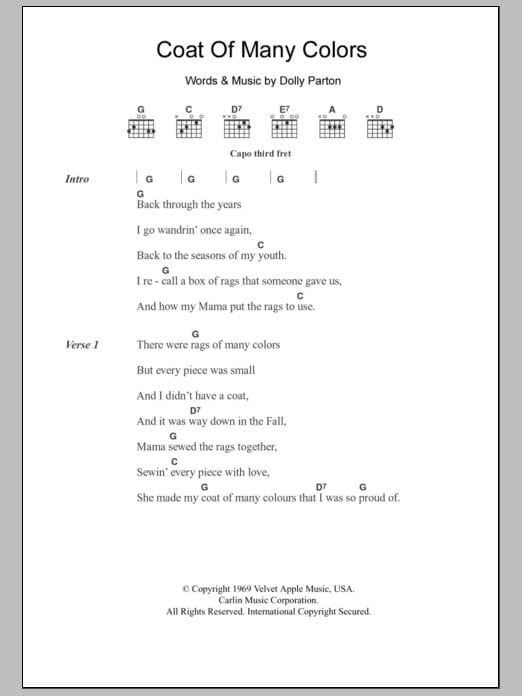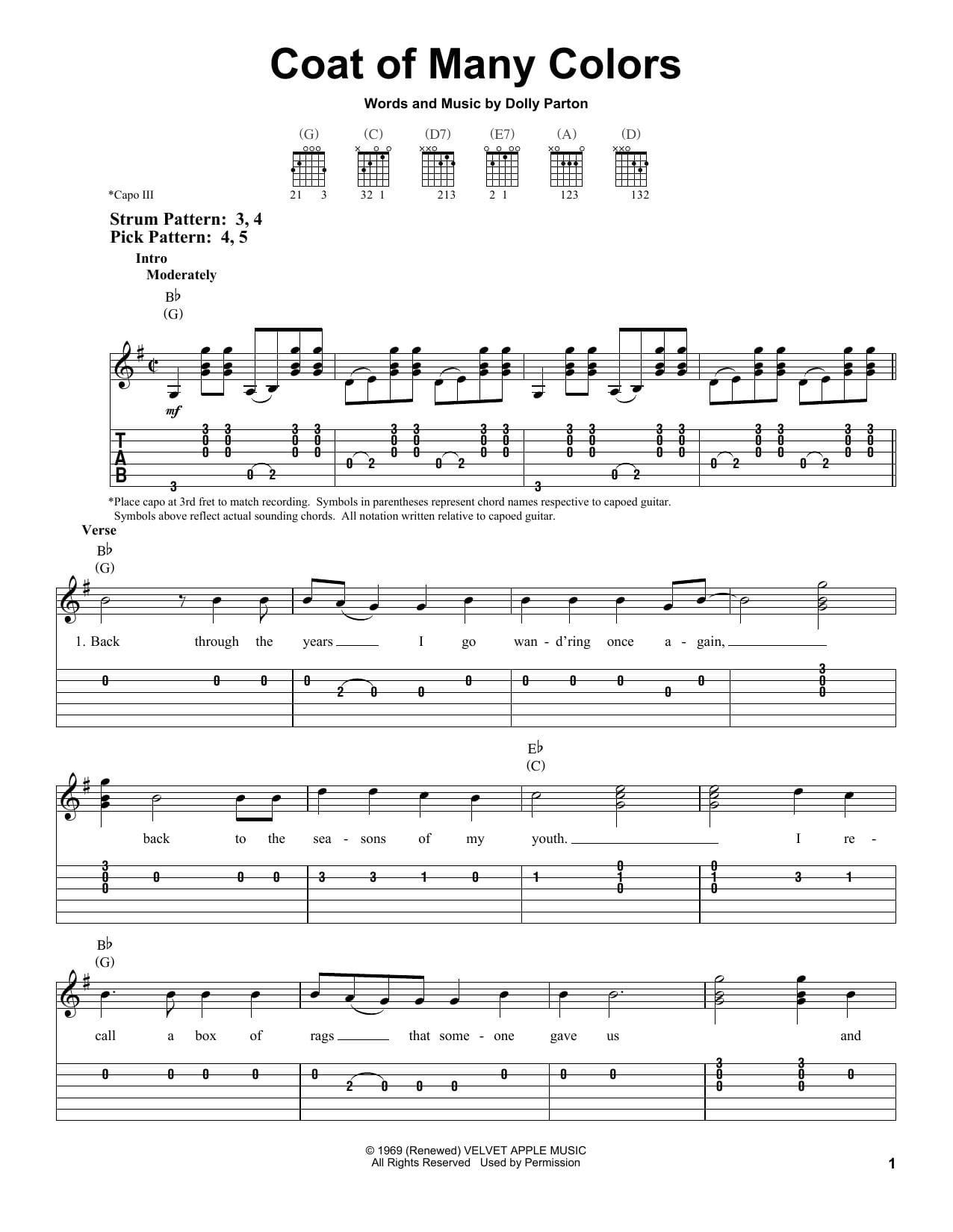
The legendary "Coat of Many Colors" song, made famous by the one and only Dolly Parton. This iconic tune has been a staple of country music for decades, and its message of love, family, and the importance of a warm coat still resonates with listeners today. In this article, we'll break down the song's structure and provide a step-by-step guide on how to master the "Coat of Many Colors" with just 5 easy chords.
The Significance of "Coat of Many Colors"
Before we dive into the nitty-gritty of playing the song, let's take a moment to appreciate the significance of "Coat of Many Colors." Written by Dolly Parton herself, the song tells the story of a young girl who receives a coat made from rags by her mother. The coat becomes a symbol of love and warmth, and the song's message has captivated audiences for generations.
Chord Progressions and Strumming Patterns

To play "Coat of Many Colors," you'll need to know the following 5 chords:
G Em C D Am
The chord progression is relatively simple, following a pattern of:
Verse: G - Em - C - D Chorus: G - D - Em - C Bridge: Am - F - G - C
Strumming pattern-wise, you can use a simple down-up-down-up pattern, emphasizing the downbeats. Experiment with different rhythms to find a feel that suits your playing style.
Breaking Down the Chord Progressions
Let's take a closer look at each section of the song and break down the chord progressions.
Verse
The verse follows a simple progression of G - Em - C - D. Focus on playing clean, crisp chords, and pay attention to your strumming pattern. You can use a combination of downstrokes and upstrokes to create a sense of movement.
Chorus
The chorus is where the song really opens up, with a progression of G - D - Em - C. Emphasize the G and D chords, as these provide the foundation for the chorus. Use a slightly stronger strumming pattern to drive the song forward.
Bridge
The bridge provides a nice contrast to the rest of the song, with a progression of Am - F - G - C. Focus on playing smooth, flowing chords, and pay attention to your vocal delivery. This section is all about telling the story, so make sure you're conveying the emotions effectively.
Tips and Tricks for Mastering the Song

Now that we've broken down the chord progressions, let's talk about some tips and tricks for mastering the song.
Practice, practice, practice: As with any song, practice is key. Start by practicing each section separately, and then work on putting it all together. Focus on your vocal delivery: "Coat of Many Colors" is a story-driven song, so make sure you're conveying the emotions effectively. Practice singing along with the original recording to get a feel for the delivery. Experiment with different rhythms: While the song follows a simple strumming pattern, feel free to experiment with different rhythms to find a feel that suits your playing style. Pay attention to your chord changes: Make sure you're changing chords smoothly and efficiently. Practice switching between chords to develop muscle memory.
Common Challenges and Solutions
Challenge: Struggling with chord changes
Solution: Practice switching between chords slowly, focusing on making clean, crisp changes. Start with slower tempos and gradually increase the speed as you become more comfortable.
Challenge: Difficulty with strumming pattern
Solution: Practice the strumming pattern separately, focusing on developing a strong down-up-down-up pattern. Experiment with different rhythms to find a feel that suits your playing style.
Challenge: Vocal delivery
Solution: Practice singing along with the original recording to get a feel for the delivery. Focus on conveying the emotions effectively, and don't be afraid to experiment with different vocal styles.
Conclusion
Mastering "Coat of Many Colors" with just 5 easy chords is definitely achievable with practice and patience. By breaking down the chord progressions and focusing on your vocal delivery, you'll be well on your way to playing this iconic song. Remember to practice regularly, experiment with different rhythms, and pay attention to your chord changes. With dedication and persistence, you'll be playing "Coat of Many Colors" like a pro in no time.
What are the 5 chords needed to play "Coat of Many Colors"?
+The 5 chords needed to play "Coat of Many Colors" are G, Em, C, D, and Am.
What is the strumming pattern for "Coat of Many Colors"?
+The strumming pattern for "Coat of Many Colors" is a simple down-up-down-up pattern, emphasizing the downbeats.
What are some common challenges when playing "Coat of Many Colors"?
+Some common challenges when playing "Coat of Many Colors" include struggling with chord changes, difficulty with the strumming pattern, and vocal delivery.
Gallery of Master Coat Of Many Colors With 5 Easy Chords







